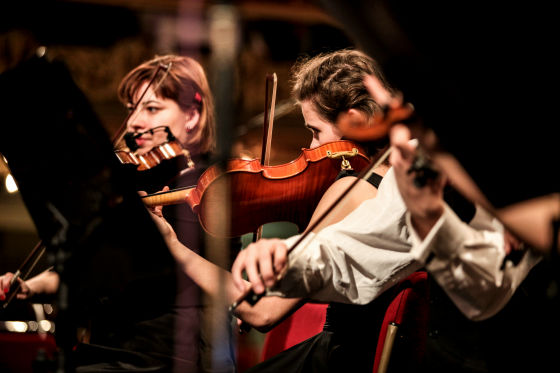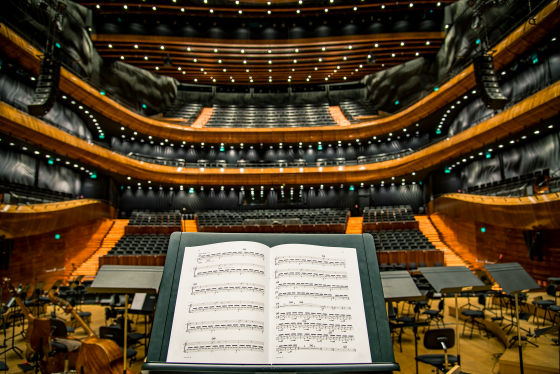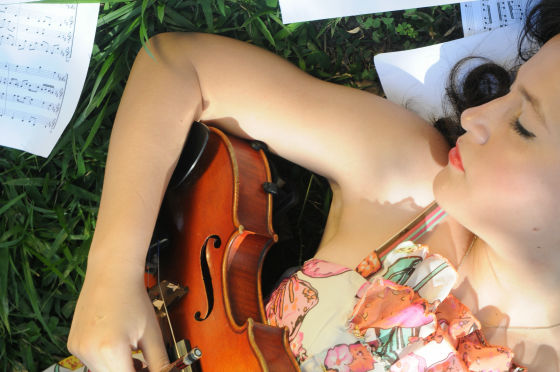Why do you decide the long-standing argument that 'music gives joy to people'?

That "Why does music give joy to people?" Was a long time ago, it was a question that Plato had already thought of as an ancient Greek philosopher. Relationship between music and pleasure is a field in which thinkers have thought in a long history, various ideas have been presented. Sam Dresser , editor who specializes in philosophy, history and politics, wrote about how the concept of 'relationship between music and pleasure' has changed from the Middle Ages to the present age.
It's hard to know why music gives pleasure: is that the point? | Aeon Essays
https://aeon.co/essays/its-hard-to-know-why-music-gives-pleasure-is-that-the-point
About the relationship between music and pleasure, medieval European music theorists supported the theory that Aristotle's "melodic sounds imitate the natural world by working with the text." Such a theory is also supported in the world of poetry, and the idea that people feel comfortable by "the natural feeling in the world" is reproduced in the work.
In the 18th century, such thoughts became mainstream, "As musicians imitate natural colors and shapes, musicians imitate voice changes such as timbre, accent, sighing. Indeed, these Sounds emanate emotions and passions, "some thinkers thought.
In the eighteenth century, many theorists frequently became more interested in the "power of beauty" of music, "Is not the shape of music imitate the form of emotion?" "Capturing passion There seems to be a question that "There is a change in tone color that can be done?" Johan Matzison , a diplomat and music theorist, said that he thought that music expressing joy should use an open melody leap, because joy comes from our life force. about. Mattison also advocated that "Despair is a melody line with a downward trend", "Early tempo is desire", "Slow slow tempo is grief", and so on. Mattezon's idea of "relating the characteristics of music and human emotions" is also seen in modern times, and selections such as "up-tempo songs when exercising" and "moist songs when wanting to cry" are performed There are many cases.

by Alice Moore
However, it was not easy for the thinkers of the 18th century to accurately locate the nature and intent of musical expressions. Philosopher Duni Diderot explained this difficulty: "Paintings show objects themselves, poetry explains about objects, but music only stirs up ideas about objects." 3 imitating the natural world Of the two arts, music is most arbitrary, a powerful speech that is lacking in rigidity is done to the soul, I do not show much about objects and just put imagination on it. " Especially, in music without text, this feature becomes remarkable.
Dido was not the only one who thought like this. At the end of the 18 th century, different ideas will emerge from Aristotle's idea of "imitating the natural world by combining poetry and music." Thomas Twining, a scholar, was also the owner of the idea that "Music is not accurate and produces joy." These thinkers highlighted the "easy-to-change" music "directing based on interpretation". Each piece of music can be played freely by each person, listeners can make thoughts through the performance, discover new properties, find meaning, and feel joy.

by Jan Střecha
Johann Sebastian Bach is one of the musicians active in the 18th century, but Bach's complex music was difficult to interpret by listening to each element. For this reason, some thinkers thought "it is difficult to enjoy Bach's music", or some people were concerned that "listeners can not hold emotions". Mr. Christian Gottfried Klaus who was a lawyer / composer / music commentator wrote about a composer who produces this kind of music, "I might have forgotten all the affection".
However, in another sentence, Klaus describes about complicated music such as Bach, "When all the voices worked well," magnificence "" praise "" enthusiasm "" joy "is said to be said by composers I also noticed that the heart was filled with stronger emotions sublimed. " Klaus finally found the possibility of "infinite experience" for this kind of complex music.
With Klaus like ideas spreading, music critic Mr. Eduard Hanslick who played an active part in the 19th century criticizes the theory of "the connection between the characteristics of music and human emotions" advocated by Matzon. Hanslick's view is that how to catch the music of Matzon recommends listeners listen to one piece of music in the same way. Hanslick thought, "Music pleasure is intellectual satisfaction obtained by attempting to understand how the composer designed the work." Hanslick 's idea is to be positioned in the opposite direction to the previous thought' Music gives joy '. For Hanslick "somewhat complicated music" was worthy of praise.

by Radek Grzybowski
In the 20th century, there was a negative theorist who thought of Hanslick. A philosopher Suzanne Langer is a person who preached the "symbolism" in the interpretation of art. Like his thinkers, Langer found meaning in the "lack of music" part. For Langer, music was not "fixed meaning" as Hanslick thought, but "it implicitly shows incomplete symbols". By listening to music as a symbol, people can make emotional stories for themselves. Langer thought that the task of deciding the meaning in light of his own emotions is intellectual.
Composer Lenard B. Meyer who died in 2007 is also a person in the same position as Langer from the viewpoint of Gestalt psychology which places emphasis on the whole theory and structure. Mayer considered that music consisted of an abstract and non-indicative element, and that people who listened to music felt delight in the part deviating from their "expectations".
The thought of Langer and Meyer has been handed down to the present age. In particular, such theory is often used in contemporary music education, emphasis is placed on a specific way of listening, "I think that the pleasure of music lies in finding something out of the social reality that produced music" It tends to tend to. However, with this idea, there is also a risk that "personal" who made music will be neglected.

by Xektop10
However, there are also indications that in the first place "music" is emphasized only in the point of "what creates joy". Both music and pleasure are based on subjective perceptions. Both are concrete and clear phenomena, but due to their nature, things that are difficult to explain in detail. If it is in this nature that reasons that have been discussed about the relationship between music and pleasure in a long history, it is very difficult to put a settlement on the relationship between the two.
Related Posts:
in Art, Posted by darkhorse_log







